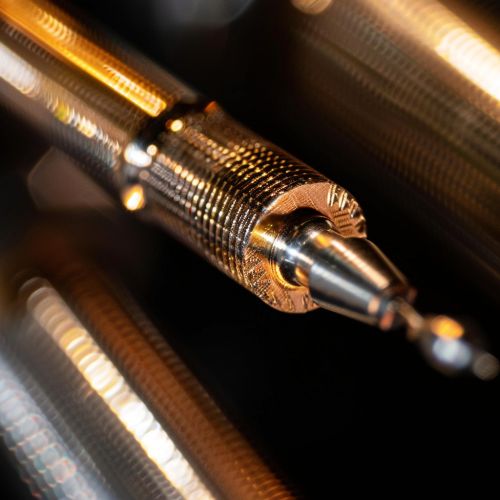Metal Electrodes
Introduction
Metal electrodes are a crucial component in various electrochemical devices such as batteries, fuel cells, and electrochemical sensors. They serve as the conductive material that allows the flow of electrons between the anode and cathode in these devices. The properties of the metal electrode, such as its composition, structure, and surface characteristics, can significantly affect the performance of the device.


Types of Metal Electrodes
There are several types of metal electrodes, each with its unique properties and applications.
Noble Metal Electrodes
Noble metals such as gold, silver, and platinum are often used as electrodes due to their high conductivity and resistance to corrosion. They are commonly used in electrochemical sensors and biosensors due to their ability to facilitate redox reactions.
Transition Metal Electrodes
Transition metals like iron, nickel, and cobalt are also used as electrodes. These metals are often used in batteries and fuel cells due to their high energy density and ability to catalyze redox reactions.
Alkali Metal Electrodes
Alkali metals such as lithium, sodium, and potassium are used as electrodes in batteries. These metals have a single electron in their outer shell, which makes them highly reactive and excellent conductors of electricity.
Properties of Metal Electrodes
The properties of metal electrodes are critical in determining their performance in electrochemical devices.
Conductivity
The conductivity of a metal electrode is a measure of its ability to conduct electricity. Metals with high conductivity, such as silver and copper, are often used as electrodes in electrochemical devices.
Corrosion Resistance
Corrosion resistance is another important property of metal electrodes. Metals that are resistant to corrosion, such as noble metals, are often used in applications where the electrode is exposed to corrosive environments.
Catalytic Activity
The catalytic activity of a metal electrode is its ability to facilitate chemical reactions. Metals with high catalytic activity, such as platinum and palladium, are often used in fuel cells and electrochemical sensors.
Applications of Metal Electrodes
Metal electrodes are used in a variety of applications, ranging from energy storage to sensing and detection.
Batteries
In batteries, metal electrodes are used to facilitate the flow of electrons between the anode and cathode. The choice of metal for the electrode can significantly affect the battery's energy density, power density, and lifespan.
Fuel Cells
In fuel cells, metal electrodes are used to catalyze the redox reactions that generate electricity. Noble metals, in particular, are often used due to their high catalytic activity.
Electrochemical Sensors
In electrochemical sensors, metal electrodes are used to detect the presence of specific chemical species. The electrode's surface characteristics and catalytic activity play a crucial role in the sensor's sensitivity and selectivity.
Conclusion
Metal electrodes play a critical role in the performance of various electrochemical devices. Their properties, such as conductivity, corrosion resistance, and catalytic activity, can significantly affect the device's performance. As such, the choice of metal for the electrode is a crucial consideration in the design of these devices.
